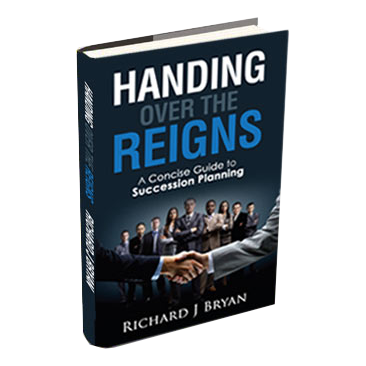In my travels on the succession planning keynote speaker circuit, I meet a lot of business owners and CEOs. Not surprisingly, the subject of succession planning comes up often. What *is* surprising, though? The number of successful corporate leaders who claim to have a succession plan in their head, with nothing written down—and the number who have no plan at all. And, truth be told, these two situations amount to the same exact thing. After all, in order for a succession plan to be of any use, it must not only be in writing, but also (a) thoroughly vetted by your advisory team, and (b) communicated with your stakeholders.
So why on earth do so many business owners put off planning their succession—and in doing so, prevent their own timely retirement? The answer, as I’ve learned in my career as a succession planning keynote speaker, can be quite complicated, particularly when it’s a family business. Here are five reasons your CEO might be dragging his or her feet.
1. Fear of the Inevitable. Think of it this way: nobody but the estate planner loves drafting a will…and a succession plan is basically a will for your company! Even if a business owner is fortunate enough to be surviving (and hopefully thriving) well into their 60s and 70s, thinking about the next phase of life can be tantamount to planning their own funeral. Especially with a closely held company, if life and work have been intertwined for many years, contemplating what comes next can feel positively morbid. It shouldn’t…but the reality is that it often does.
2. Fear of the Unknown. I recently had lunch with a client whom I met on the succession planning keynote speaker circuit, and whom I subsequently coached through challenging times as a business owner. Even now that his company is on stable footing, I know he still finds his leadership role challenging and stressful. I asked him if he had any plans to sell the business in the longer term, as he does not have family to pass it on to. His reply was, “What would I do if I sold this business? I have never worked anywhere else since leaving school!”
And it’s a common refrain—one which I myself was singing at one point! When I sold my family’s car and truck dealership business in 2008, I had no idea what I was going to do next. But in the years that followed, I started and grew a successful commercial real estate business and a succession planning keynote speaker business, as well as advisory work for several boards of directors. This diversification is enjoyable, and mitigates the risk of having all my eggs in one basket. I could not have foreseen this 12 years ago, but I took the leap…and ultimately it was the right move for the company as well as my future endeavors.
3. Fear of Financial Ruin. This is an especially common excuse with older CEOs, but it’s often just that: an excuse. When working with my clients on the succession planning keynote speaker circuit, I like to ask them this pointed question originally posed by Tom Dean: “Are you in love with the business you are in…or do you love the idea of being in business?”
Case in point: my father had plenty of assets beyond the family business, including income-producing real estate and a healthy pension fund that he had built up over the 45 years he worked for the business. His belief that he “couldn’t afford” to retire had more to do with the social and emotional capital he’d invested in his business than his financial health.
4. Fear of the Business Failing. At this point you may be asking, “But are ALL the excuses really rooted in fear?” Yes. Yes, they are. But while many CEOs may worry that the business will fail without their unique leadership flair—the failure to create a proactive succession plan virtually guarantees that failure. A CEO who does not plan ahead (5–10 years) for departure risks either selling the business for a significant discount, or worse: winding it up because it is not a desirable asset. I might argue that if you’re concerned that your business can only be successful with you at the helm, your business might not be truly successful. Food for thought.
5. Fear of Choosing the Wrong Successor. I’ve written before about “analysis paralysis,” and it’s funny how the most decisive CEOs can suddenly become afflicted with this when the decision at hand involves their successor. Of course, planning the succession of a family business adds an extra layer of emotion, particularly when the outgoing leader is faced with a decision that involves their own children. It’s easy to freeze up! But, as I say to my succession planning keynote speaker clients: “no successor” is always the wrong choice.
It’s the CEO’s responsibility to plan ahead for the continuity of the business. Public companies have a responsibility to shareholders to make sure that succession planning is an ongoing process—and that they evaluate both internal and external talent in order to find the best candidate. The same principles apply to closely-held businesses; even if there are viable options within the family, looking outside always brings a healthy perspective to the process.
Here’s to Your Business Success!
Richard J. Bryan
Related Topics:
Business Contingency Planning: What, Why + How
Stepping Out, Not Down: Why Your Aging CEO Won’t Retire
The Role of the Board During Family Business Succession


